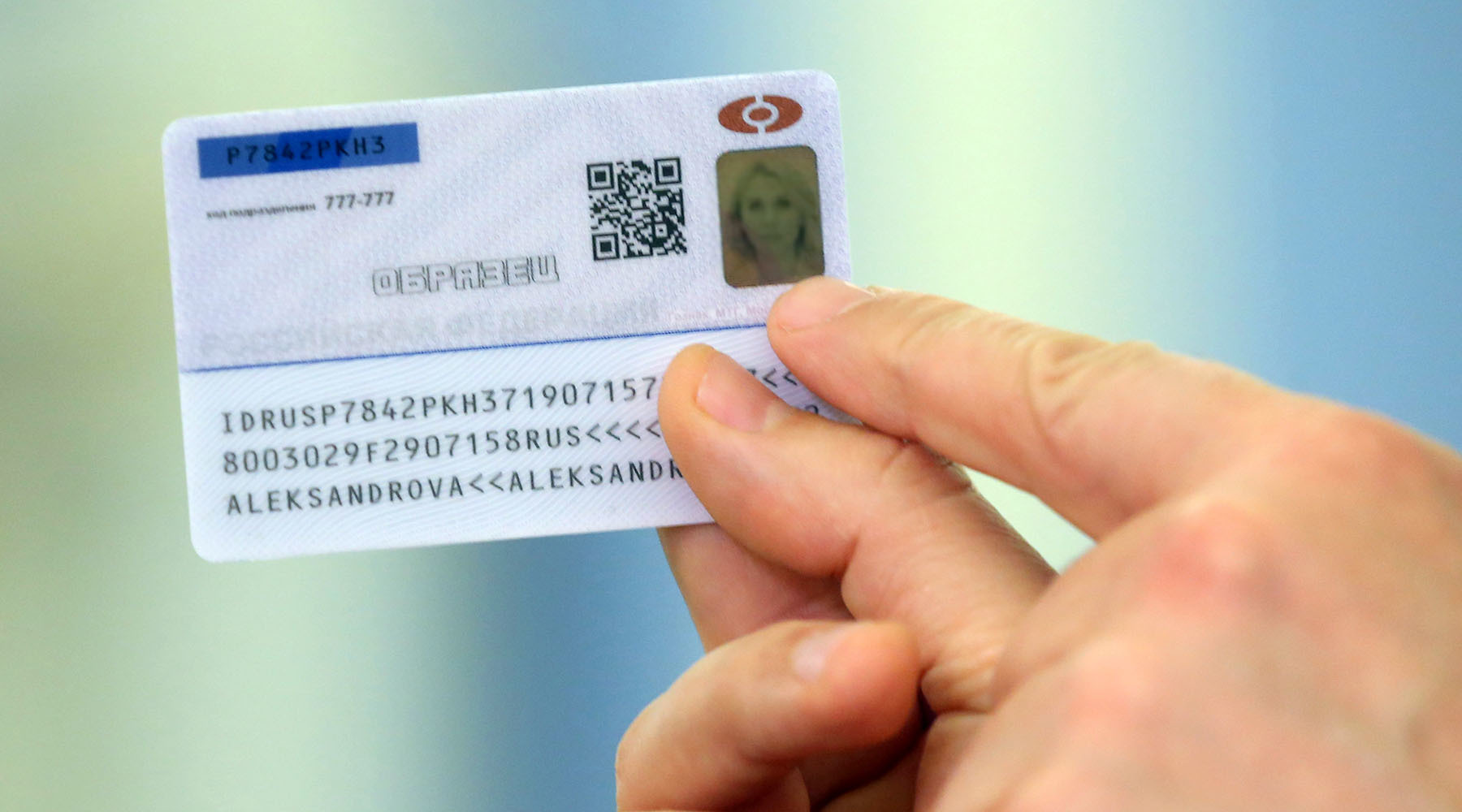By December 1, 2021, the Ministry of Internal Affairs of Russia expects to complete preparations for the pilot launch of an electronic passport system in Moscow.
This was reported in a press release from the department.
Preparatory work is being carried out jointly with the Ministry of Digital Science, the Mayor's Office of the capital, as well as other interested government bodies and the business community.
“This document will be a plastic card the size of a bank (ID1 format) with an electronic data carrier of domestic production.
It will contain the data contained in the current paper passport of a citizen of the Russian Federation (on registration at the place of residence, on marital status, on children).
At the same time, the basic information about the citizen will be placed on the plastic card itself, ”the message says.
The ministry stressed that the electronic passport will be distinguished by a "higher degree of security" compared to a regular, paper identity document, as well as practicality and durability.
In addition, in case of loss, it will be possible to quickly block.
“It is assumed that the electronic passport, as well as the mobile application that complements it, will become the key to government and commercial services, provide all citizens with a qualified electronic signature,” the Ministry of Internal Affairs noted.
It is noted that the basic data of the electronic identity card can be read using a mobile application "without additional costs from citizens and businesses."
RIA News
© Ekaterina Shtukina
Earlier, the head of the Ministry of Digital Science Maksut Shadayev said that the project to create digital twins of the basic documents of citizens would start in 2021.
He also stressed that the technology involved was tested during the first wave of the spread of coronavirus infection COVID-19, when digital passes with a QR code were introduced.
“The digital passes, which were checked by the Ministry of Internal Affairs, in fact, this was the technology for working out this solution, and everyone understood that it works, it can be launched and, in general, it is not necessary to have a certificate that you can leave the house, paper form.
You show the QR code electronically, the check is in progress online and everything is fine, ”he said.
In addition, the general director of Goznak, Arkady Trachuk, told Rossiyskaya Gazeta that, in addition to basic information (name, date and place of birth, driver's license, SNILS and TIN), biometric data will be entered into the electronic passport.
Recall that in the summer of 2019, Dmitry Medvedev, who at that time was the Prime Minister of Russia, reported that by 2024 Russia should have a full transition to the use of electronic identity cards.
Also, a sample of an electronic passport and a special application "My Passport" were presented, which will work on all mobile platforms, including the Russian development "Aurora".
"Correct and useful innovation"
As the first deputy chairman of the Federation Council Committee on Social Policy Valery Ryazansky noted, when introducing new technological solutions affecting personal data, it is necessary to comply with the conditions that will prevent personal information from entering the public space.
“Of course, it is convenient when you can quickly and quickly, in the mode of touching the reader, get all the information that interests you, since now you often have to go to the authorities, this is really so.
Therefore, I believe that this is correct and useful from the point of view of providing additional services for our citizens, I do not see any negative here.
There is also, it seems to me, one advantage in resolving such issues, when such information services are provided on the basis of devices manufactured on a domestic electronic digital basis.
This is at the same time an order for our electronics industry, it gives jobs, it is always useful, ”said the interlocutor of RT.
In turn, the general director of ANO Digital Platforms Arseniy Shcheltsin also stressed that during the preliminary work it is necessary to explain to citizens how safe, convenient and profitable the transition to the electronic format is.
“Because now there is a certain distrust of various such digital innovations, first of all, because of the security issue.
That is, is it possible to copy such a card, is it possible to somehow clone it electronically and use it remotely, for example, in another region for registering a loan or re-registering real estate.
How such threats and risks will be handled and so on.
According to him, after clarification of these issues, the technology can be applied in large quantities.
"Because, according to the current state, citizens have more questions for such very convenient, but visually dangerous gadgets," the expert emphasized in an interview with RT.

